New Mitsubishi cars first showed up in the United States with Dodge Colt badging in the 1971 model year, and a broad range of Dodge- and Plymouth-badged Mitsubishis followed them across the Pacific in subsequent years. For the 1983 model year, cars bearing Mitsubishi badges finally appeared here, and there were four models available to start with: the Starion, Mighty Max, Tredia and Cordia. The sporty Starion and the sibling-to-the-Ram-50 Mighty Max pickup remain well-known to this day, but the Tredia and its Cordia platform-mate have all but disappeared from streets, junkyards and — for most of us — memories. I thought I’d never see another discarded Cordia again after spotting a first-year example nearly a decade ago, but then this ’86 showed up in a San Francisco Bay Area self-service car graveyard recently.
The Cordia and Tredia were the same car, mechanically speaking. The Tredia was a subcompact sedan priced to compete with the Toyota Corolla and Honda Civic, while the Cordia was a slick-looking liftback coupe that sought to lure potential buyers away from the likes of the Datsun 200SX, Toyota Celica and Isuzu Impulse.
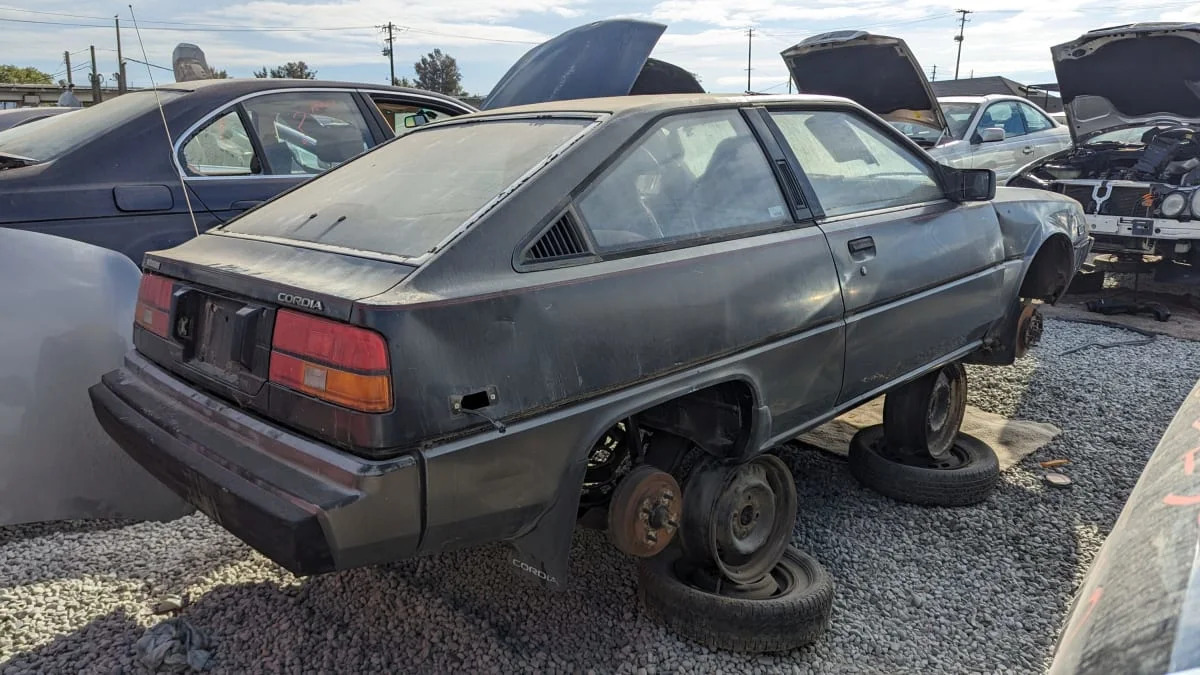
Both the Cordia and Tredia sold very well in Australia and New Zealand, but North Americans mostly ignored the Cordia and laughed at the Tredia. The last model year for both models in America was 1988.
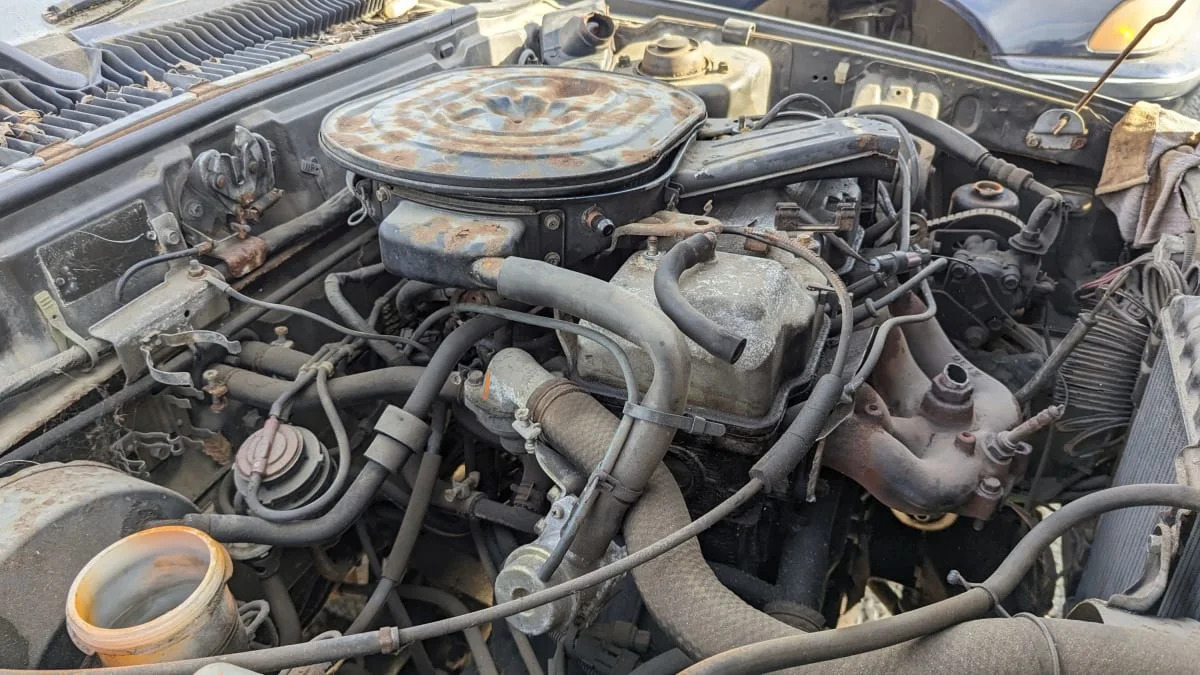
The Cordia was a cousin to the Galant and had the same front-wheel-drive layout. In 1986, Cordia engine choices were a naturally-aspirated 2.0-liter 4G63 straight-four rated at 88 horsepower and 108 pound feet and a turbocharged 1.8-liter 4G62T straight-four with 116 horsepower and 129 pound-feet. This car has the 2.0.
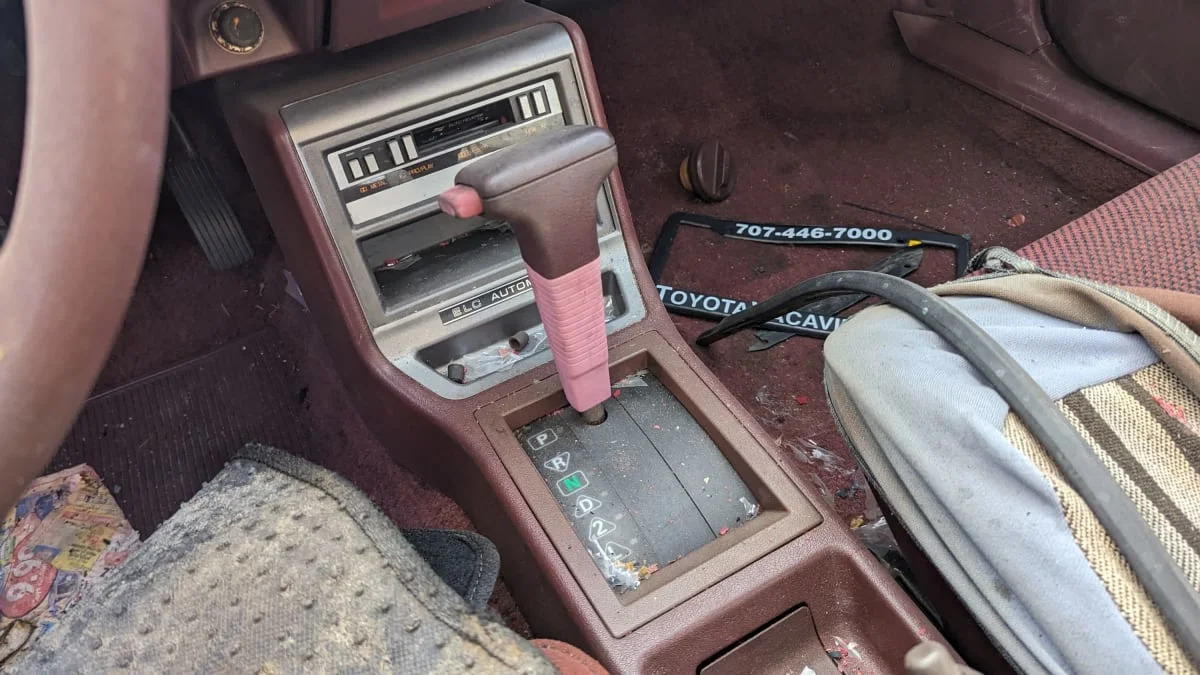
A five-speed manual transmission was base Cordia equipment, but the original purchaser of this car opted for the 380-buck automatic (that’s 1,067 of today’s bucks).
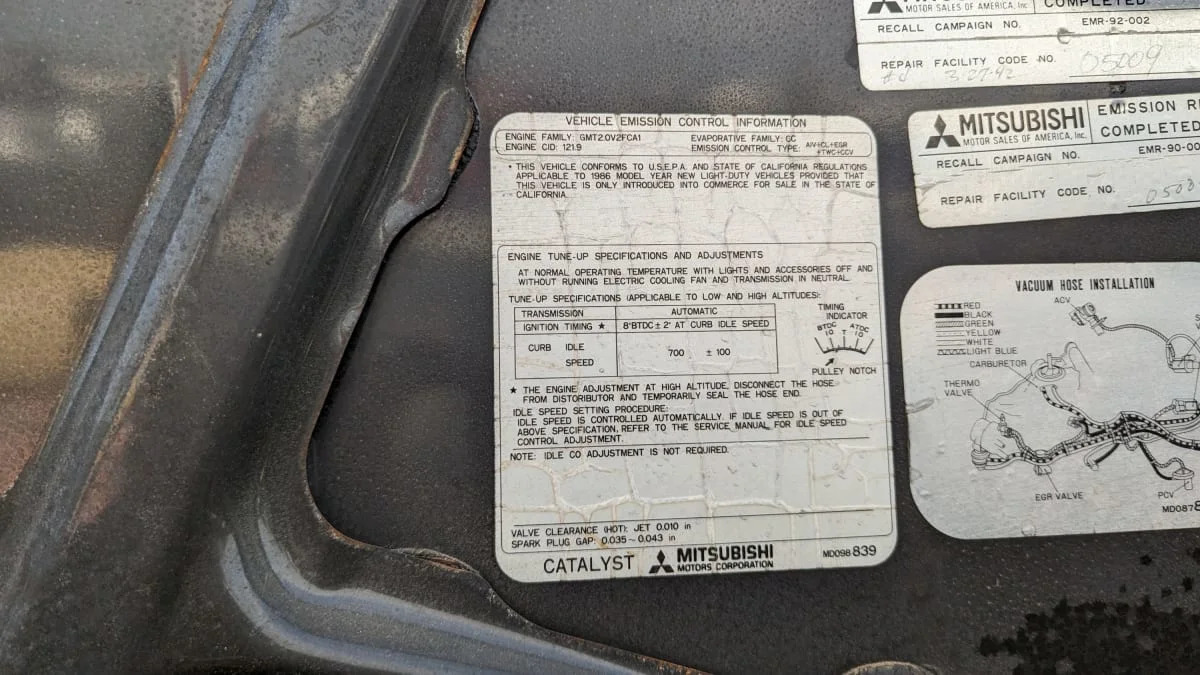
The emissions sticker tells us that this is a California-market car rather than a “49-state” version.
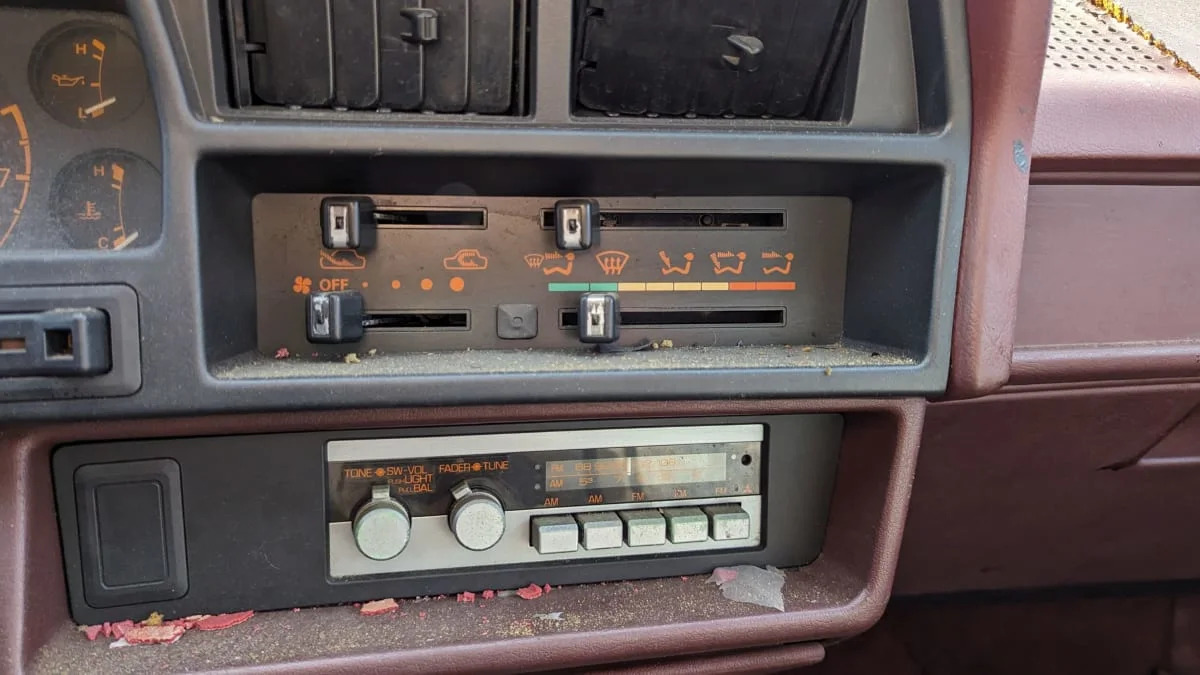
Surprisingly for a car like this in the middle 1980s, an AM/FM stereo radio was base equipment. That worked out well for those who enjoyed the great music of the era.
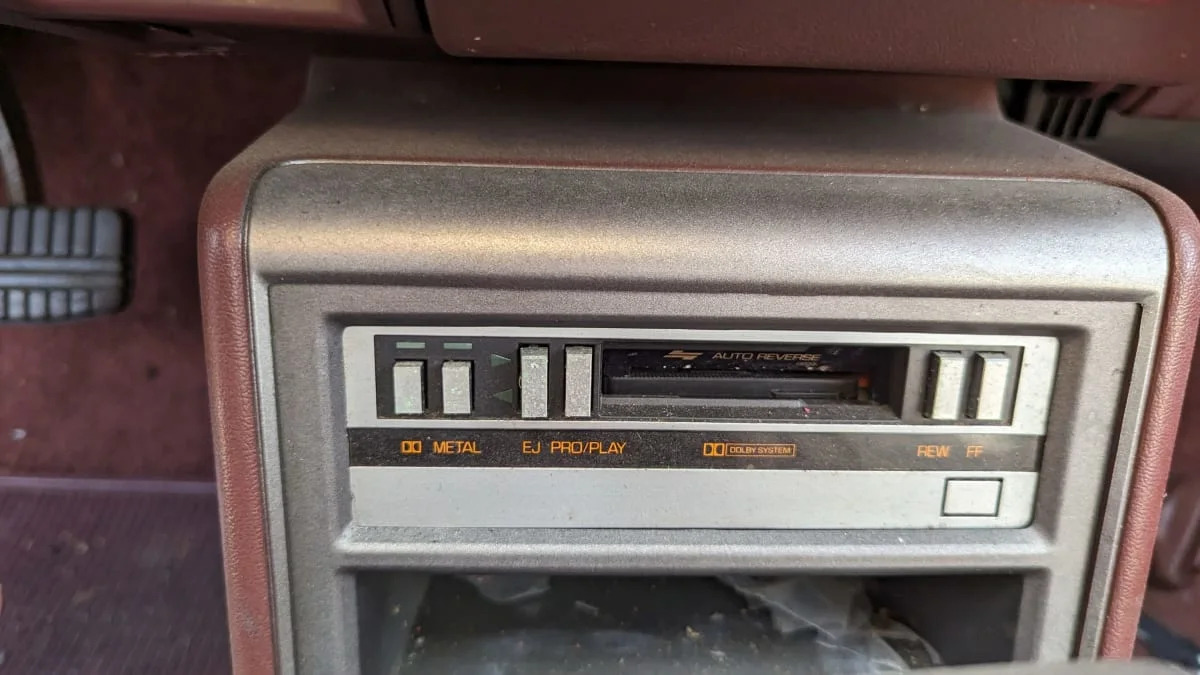
However, if you wanted to play cassettes you had to pay extra. This setup with separate cassette deck was fairly common during the decade; the cost for the 1986 Cordia was $133 (about $374 in 2023 dollars).
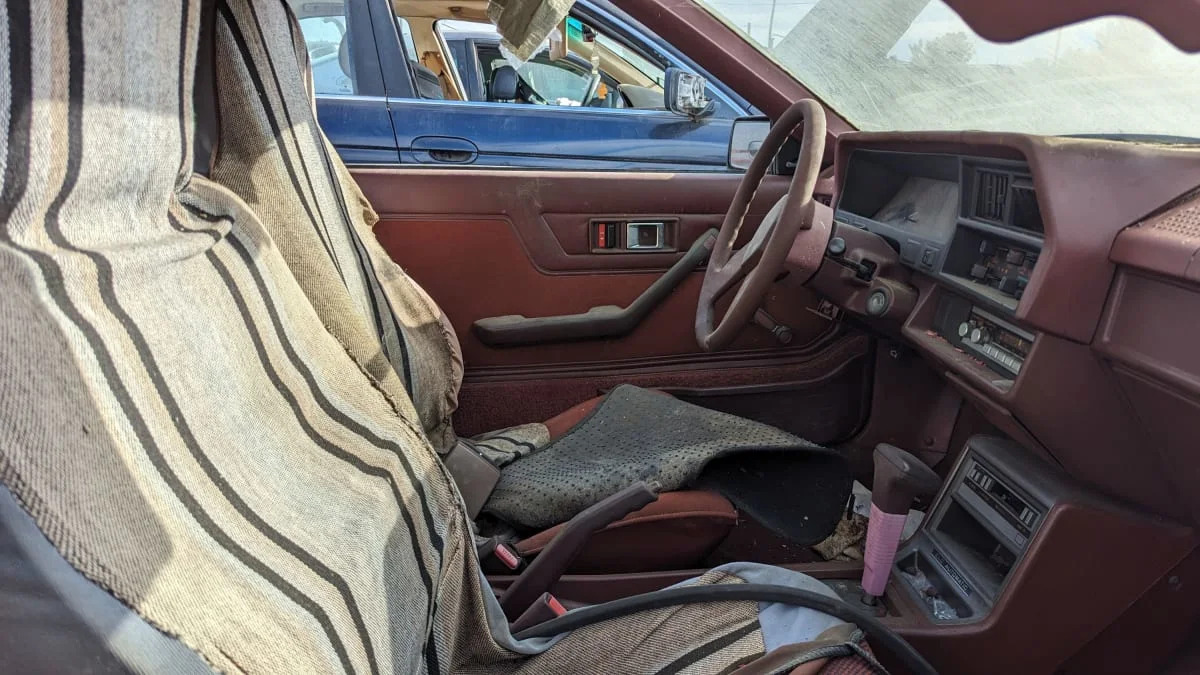
The paint is faded but the interior doesn’t look terribly thrashed.
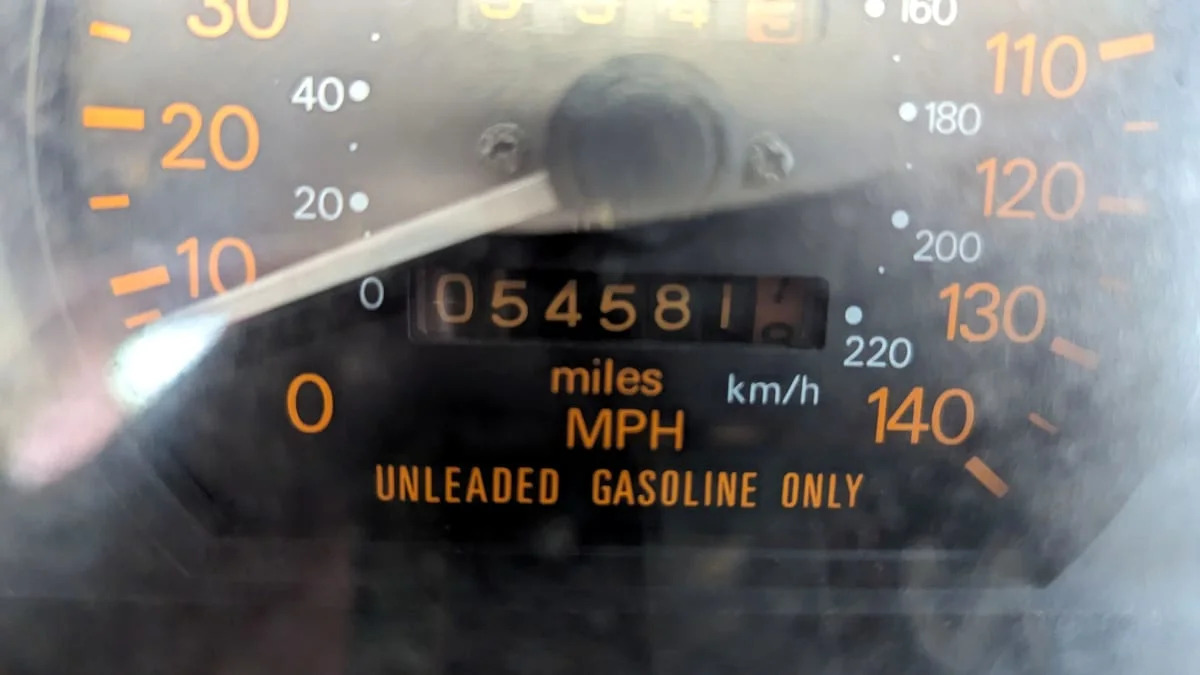
The odometer shows just a bit over 50,000 miles, which likely indicates either a broken speedometer cable or a car that stopped being driven decades ago and sat in a driveway until the Pick-n-Pull tow truck finally came for it.
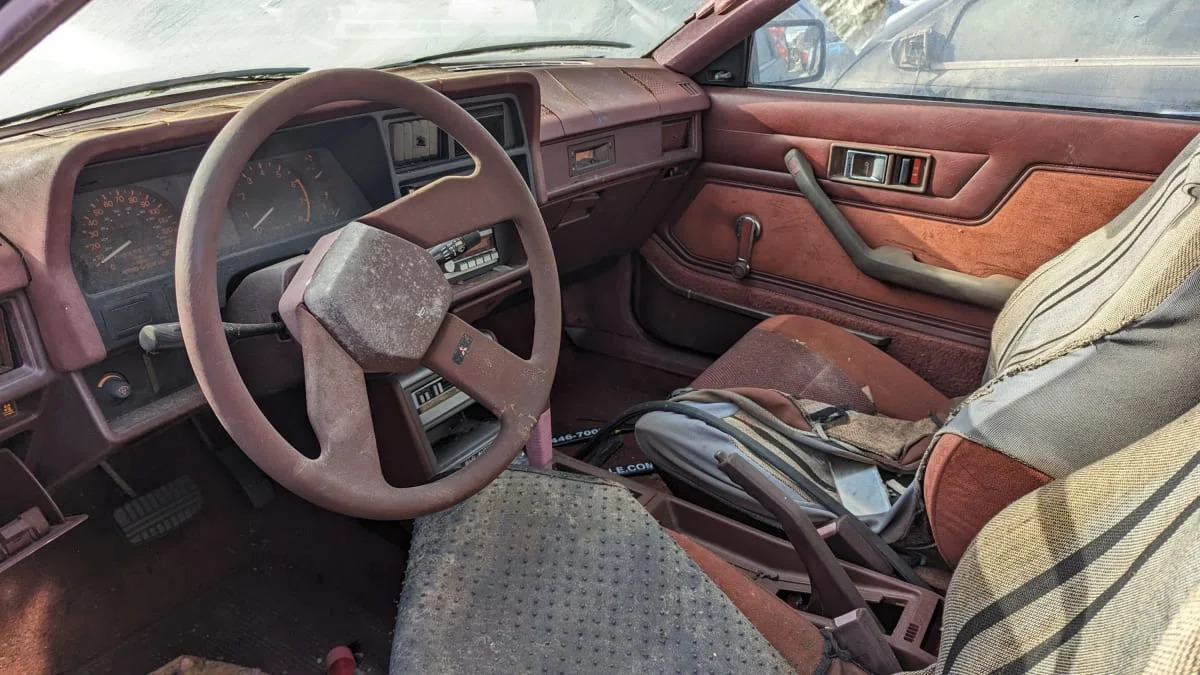
The MSRP for this car was $9,069 with the automatic, or about $25,468 now. The Nissan 200SX hatchback with automatic started at $9,999 ($28,080 today).
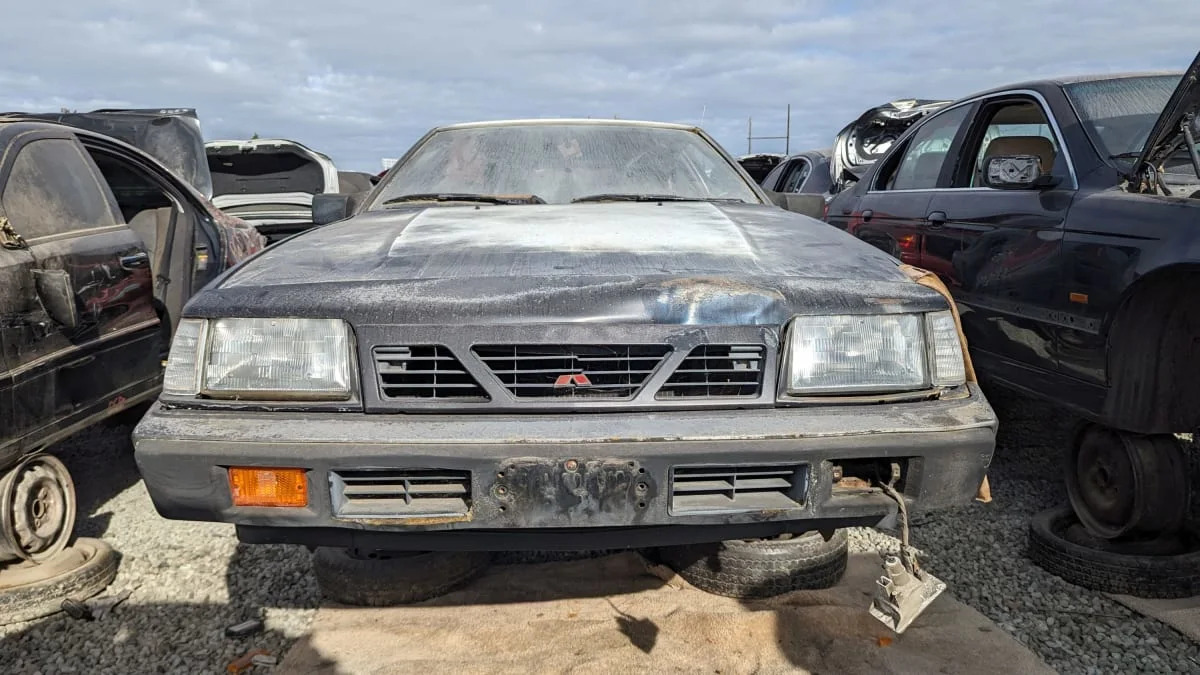
By the time the Cordia disappeared the American Mitsubishi dealerships, the Montero, Mirage and Galant were selling well enough that few noticed its absence.
9.75% financing in Glendale, Irvine and Riverside.
In 1984, every single Mitsubishi model could be had with turbocharging (though the Mighty Max Turbo burned diesel).
The Cordia/Tredia ads we got here weren’t much fun, so we’ll need to go elsewhere to see the good stuff. For example, this James Bond-themed home-market commercial.
The four-wheel-drive versions weren’t offered here.
Diamonds.
Looks good through a periscope.
In Australia, the Cordia got these commercials with a song based on the 1982 Laura Branigan hit. It’s sportia! It’s roomia!
Read the full article here


